In a reckless race for better profit margins, almost no one can beat a manager at shooting themselves in the foot. Loyal employees will be dropped, quality curtailed and customers left unsatisfied, all in the pursuit of a bit more money. But sooner or later, it comes to bite them in the rear.
One employee shared a bit of mischief-making when their boss demoted them while keeping the responsibilities the same. Realizing that this was not worth the hassle, OP quickly found a new job and left, but not before leaving an important task incomplete just days before a huge deadline. Needless to say, management learned their lesson the hard way.
Managers way too often don’t know what they’ve got until it’s gone

Image credits: Medienstürmer (not the actual photo)
A long-time employee ended up getting demoted to cut costs, so they hatched a devious plan

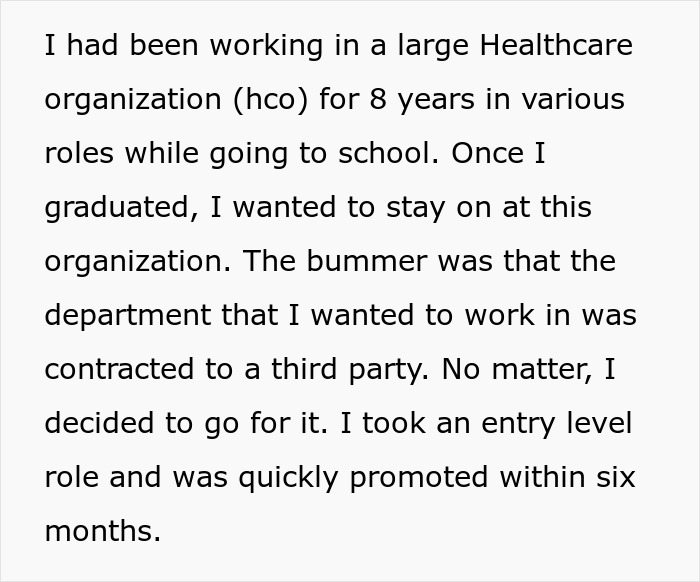
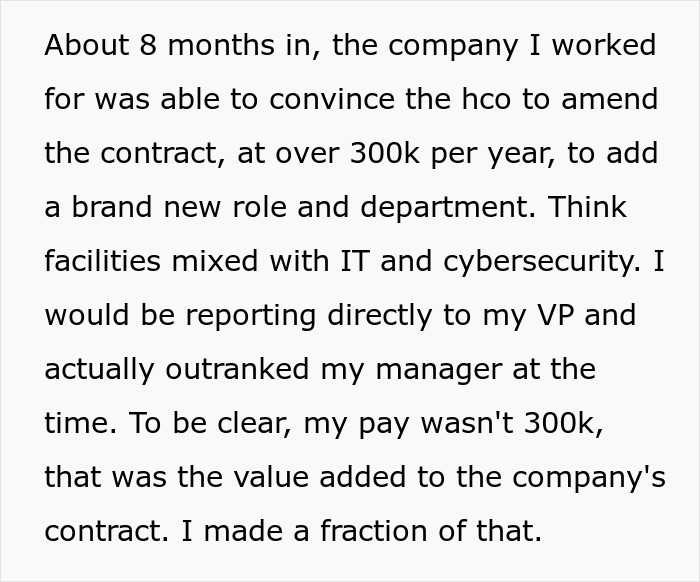

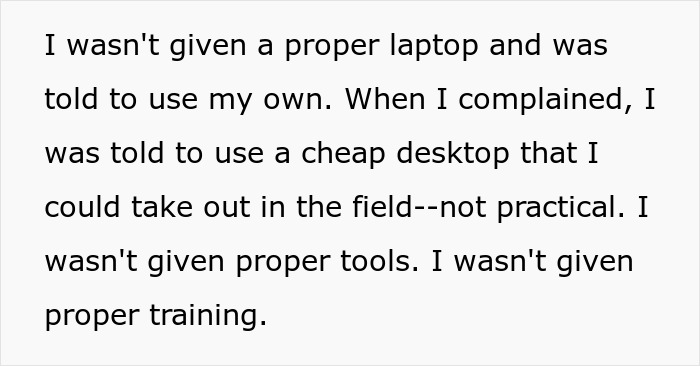
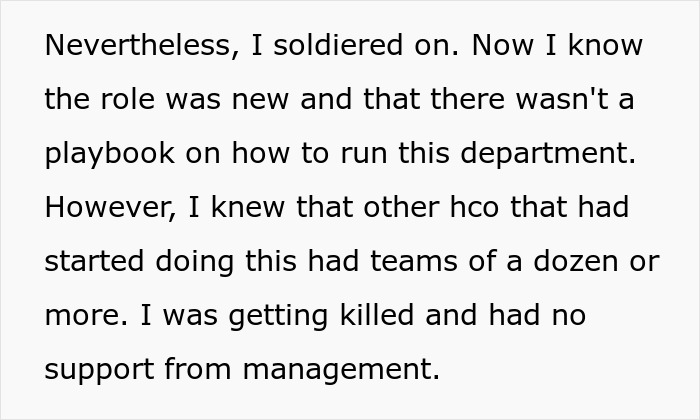
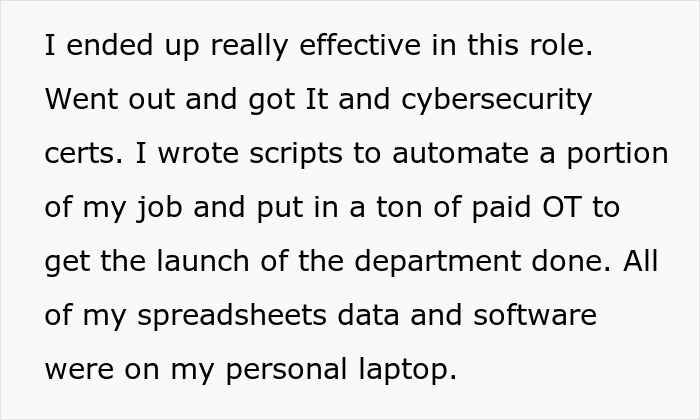
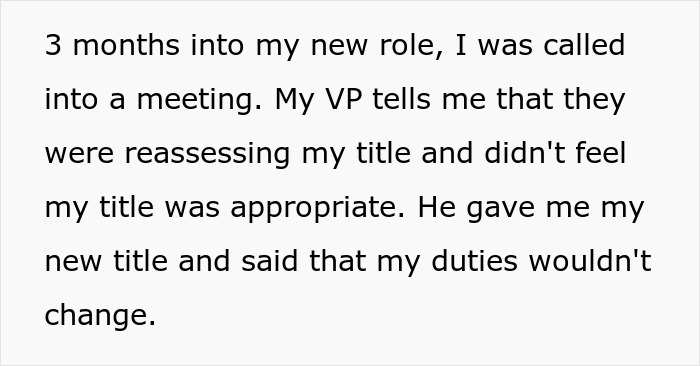
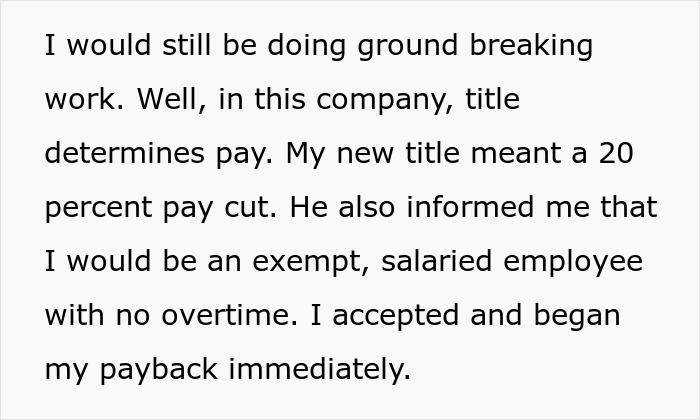
They weren’t going to do the same job for less pay, so they started by acquiring a new job

Image credits: stokkete (not the actual photo)


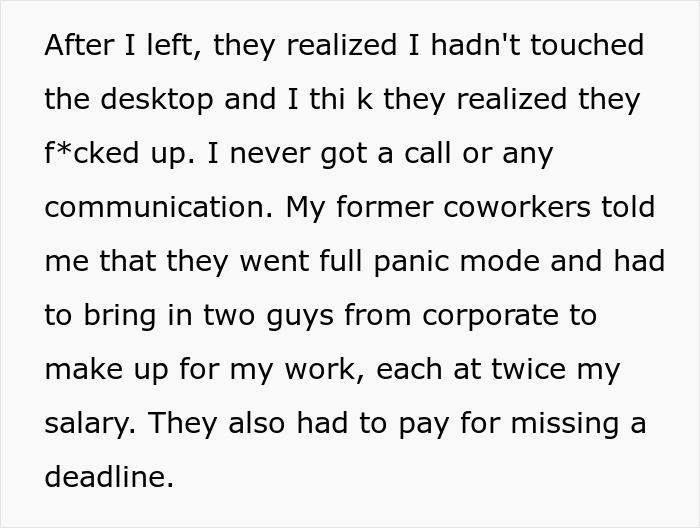
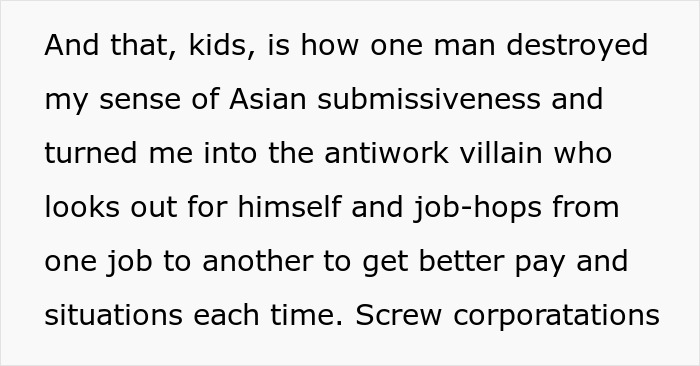
Image source: Apprehensive_Pay5195
Cutting salaries might end up costing you more in the long run than just giving someone a raise

Image credits: Karolina Grabowska (not the actual photo)
It’s almost staggering to think that OP spent around eight years at an organization that still had the gall to demote them. This seems like an eternity compared to the average for younger workers, which in 2023 stands at 2.8 years for people between the ages of 25 to 34. Plus, OP clearly works in a specialist role, meaning their expertise and experience should be more in demand than ever. After eight years, it’s safe to say that an employee is downright loyal, but managers being shortsighted is a tale as old as time. Common sense would dictate that keeping such a worker would be valuable and in the company’s best interest, particularly if there is a deadline coming up. A more cynical manager would perhaps preserve OP’s title until after the deliverable, but this story is full of shortsightedness all around.
Beyond the obvious benefits of a worker that knows the ins and outs of a company, there are a lot of hidden costs for replacing them. Turnover lowers productivity, as new workers have to be found and when they are found, they need to be trained. Some estimates indicate that the “costs” of acquiring a new employee are roughly 33% of the salary of whoever they are replacing. At the end of the day, companies exist to make money, but this doesn’t mean that “immaterial” concepts like loyalty, reciprocity, and morale aren’t all important for the bottom line. If loyalty is rewarded, employees will be more loyal to the company. On the flip side, demoting someone like OP also sends the message to all employees that this company doesn’t care if you give them a decade of your time. These days, many workers are more savvy, and will rapidly quit if the company doesn’t seem like a good fit. About a fourth of new workers leave in roughly one year.
Workers are starting to wise up to the fact that their loyalty often won’t be rewarded

Image credits: Anna Shvets (not the actual photo)
Now, many companies that undervalued their staff are facing the consequences. The great resignation is a good test to see just how well or poorly a company treated its workers over the last few years. The scale of the “great resignation” indicates that most have a lot of room to improve. The bottom line, so important to many managers, is that undervalued workers are significantly more likely to leave. At scale, the loss of productivity and constant retraining does not seem like they add up to a functioning business in the long run. However, managerial incentives often mean that uncreative or particularly greedy bosses will cut costs to get bonuses. This ultimately can prove disastrous for the company, as OP’s story shows.
It is probably too much to ask for companies to think about things outside of a cell in a spreadsheet, so perhaps the actual numbers will help. Setting aside the many, many hidden costs of poor employee retention, companies with highly engaged employees tend to perform better. And to put it into numbers that a spreadsheet fanatic can understand, companies with more motivated workers are about 21% more profitable and 17% more productive. We all know that profitability does get decision-makers’ attention, so hopefully, in the long run, people start to draw the right conclusions. And this applies to employees as well, OP said that they now always look out for themselves when looking for a job. The rise in popularity of groups like r/antiwork shows that workers are starting to demand better treatment, and we will all be better off for it.
Readers reacted with mirth at OP’s story and they answered some follow-up questions
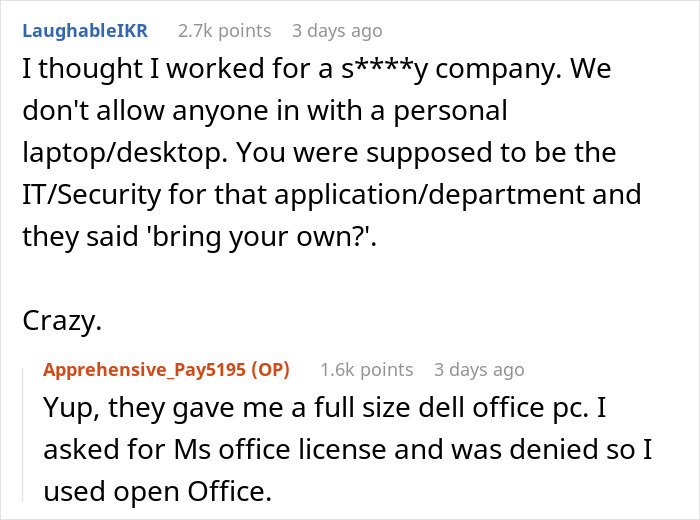
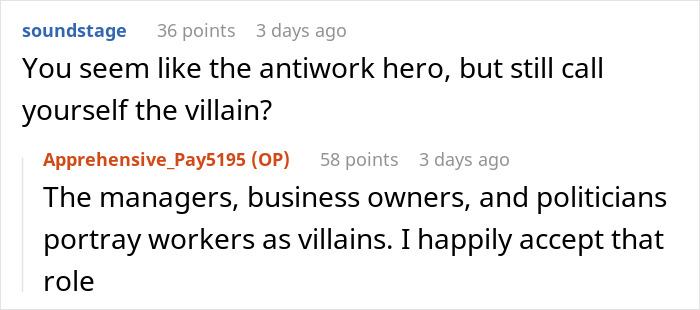
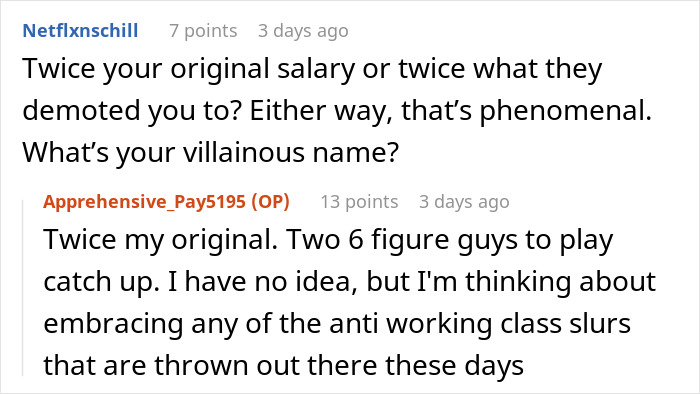



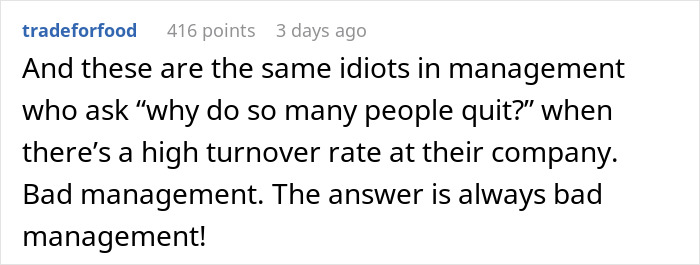




Others gave their own stories of bosses trying to cut corners


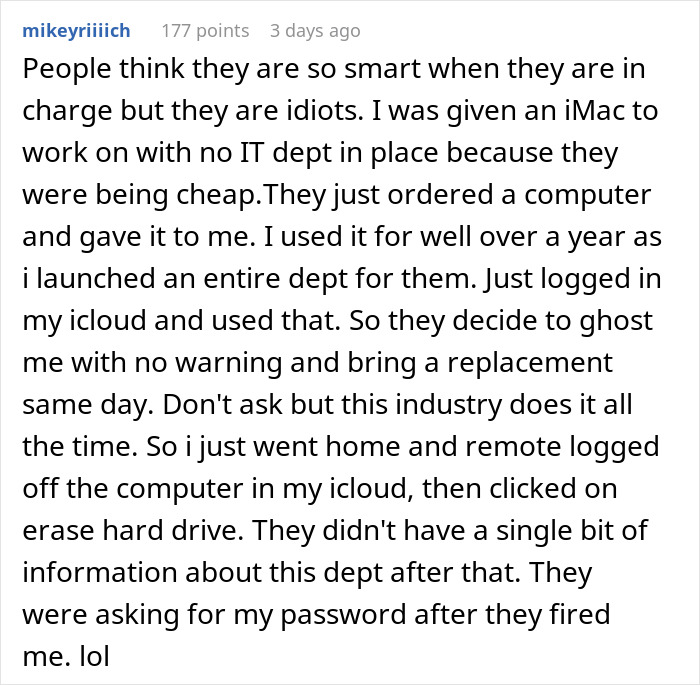
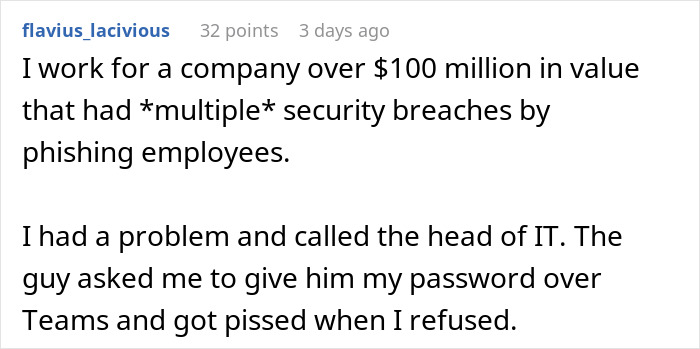

The post Worker Wastes No Time Making The Company That Demoted Them Regret Their Decision first appeared on Bored Panda.

















